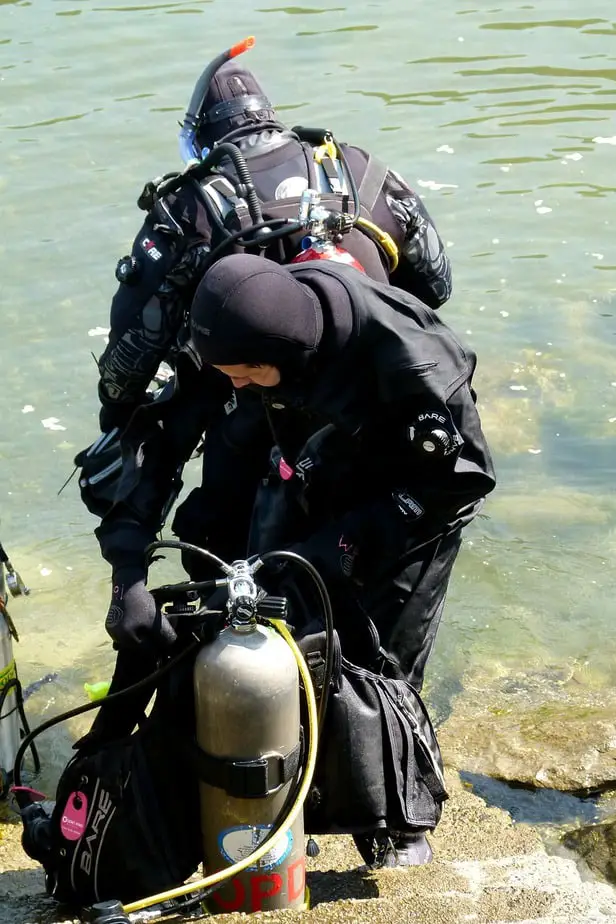Not sure whether you should continue renting your scuba tank, or take the plunge and get one of your own? That depends on many factors, and each person’s situation is different. That is why, before you buy your own scuba tank, ask yourself these questions:
How often do you dive? If you scuba dive infrequently, it doesn’t make financial sense to buy. Do you plan on diving locally or diving abroad? If you generally dive out of the country, you should probably just rent a scuba tank. If there are lots of shore diving opportunities nearby, then buying is a great option. Are you willing to clean and maintain a scuba tank? Are you okay with filling the tanks yourself, as well as paying for the visual inspection and hydrostatic test, or do these things sound like too much of a hassle? Keep all of this in mind when deciding if you should buy your own tank or not.
As you can see, there are a lot of questions to consider before you buy your own tank. For the vast majority of divers, it’s probably a good idea to simply rent a tank from the local dive shop at the scuba diving destination unless you live in an area where there are plenty of scuba diving sites close by.
In this article, we’ll discuss in more detail all of the pros and cons of buying a scuba tank so you can figure out if you really want your own scuba tank or not.
Reasons to buy your own scuba tank
There is an eternal debate about whether it’s worth it to buy or rent scuba gear. We would be doing you a disservice if we said there was a correct answer because everyone’s situation is different. Instead, we must weigh the positives and negatives and then you must decide yourself if buying is worth it. This section contains the main arguments in favor of buying a scuba tank.
Cost
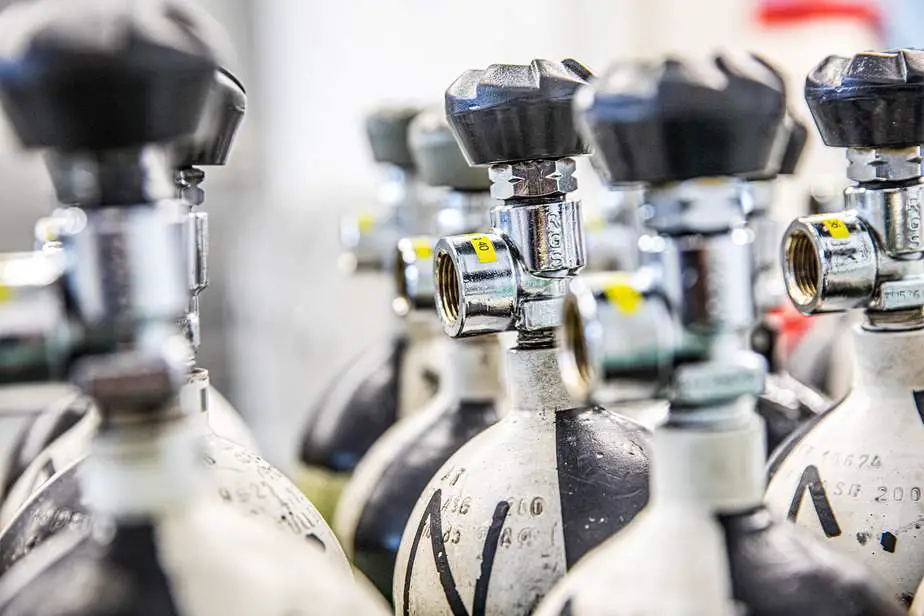
If you scuba dive frequently, then it makes the most financial sense to buy your own equipment outright instead of renting each time. After renting a scuba tank for, say one or two dozen times, you have already paid the same cost as buying a new tank. Another way to think about it is: after buying a tank, if you’ve used your tank on a dozen or more dives instead of renting, you’ve already broken even on your purchase.
This is even factoring in the additional costs of owning a scuba tank, such as the cost to refill your tank each dive, replacing faulty valves, and doing a visual inspection once a year and a hydrostatic pressure test every 5 years. If you dive often enough, you will still save more money in the long run.
Depending on how well you maintain your scuba tank, you might never need to buy another one either. Scuba tanks are what you’d call “buy it for life”, because both steel and aluminum tanks can last for decades. Particularly steel tanks – there are tanks that have been in service for over 50 years and are still going strong.
Thus, after buying a tank, you just need to worry about the ongoing costs of refilling it (extremely cheap if using standard gas) and getting it serviced, which will be much cheaper in the long run than renting a tank each time.
That said, the cost of owning a tank might be too high in an area where tank rentals and refills are cheap. For instance, maybe it would take over 30+ dives where you rented a tank to match the cost of buying a tank, and maybe you don’t dive that often. In this case, it might be a more attractive option to simply rent than deal with any of the hassles of owning a tank.
Convenience
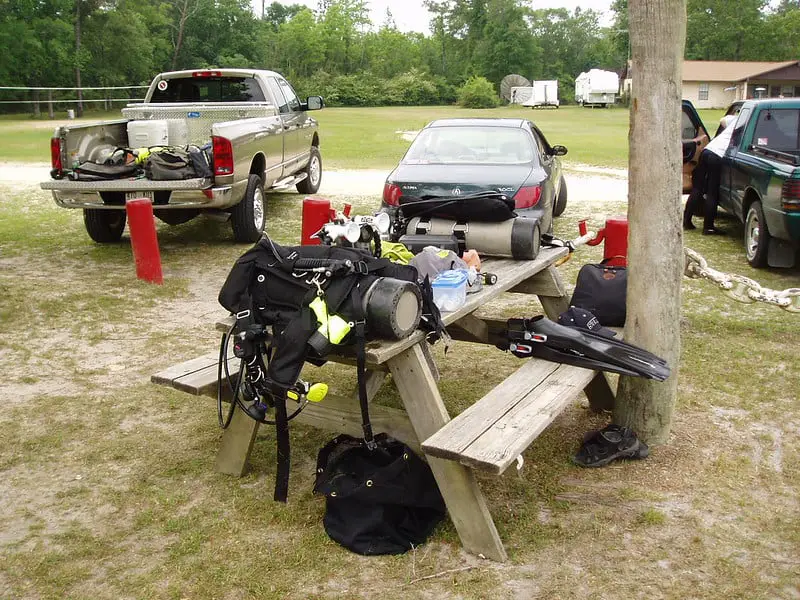
If you live near the coast or are willing to do some freshwater diving, then the convenience of owning your own tank cannot be understated. Having your own gear means that you can be available at a moment’s notice. Within an hour of getting a call or text from your diving buddy, you can already be underwater and enjoying a leisurely dive.
When you own your own scuba tank, you are not as beholden to dive shop hours or locations. You don’t have to plan your dives around when the closest dive shop is open. With your own gear in hand, you can go anywhere, anytime you want, which is great for spontaneous dives with friends and family. Just make sure to get your tanks filled mid-week or whenever so you have a full tank ready to go.
Familiarity
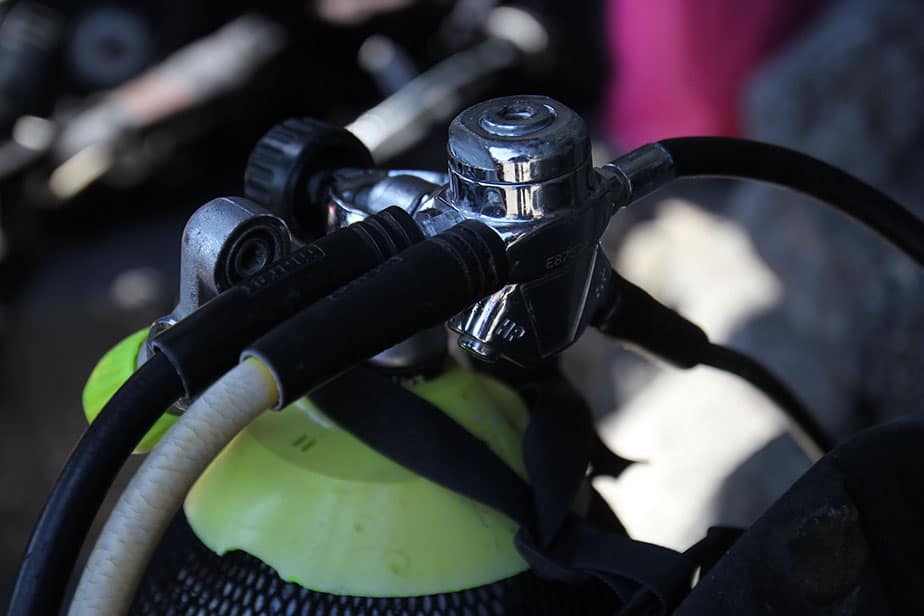
When you own a set of your own scuba gear, then you are familiar with how to use them, and therefore you are at your safest. Familiarity = safety and comfort. It’s nice to have your scuba gear dialed in so you are comfortable each time and can use the gear to its fullest extent. If anything were to go wrong, you will know how to handle your gear, saving you precious seconds during an emergency situation. With rentals, you won’t know what to expect until the last minute.
Specificity
Depending on the type of diving you do and your personal preferences, you might want a specific scuba tank that rental shops don’t have available. For instance, perhaps you prefer having more air in your tank and you like using steel tanks, so you can buy your own large steel tank. Most dive shops only rent out AL80 tanks, so your options are severely limited in this regard.
Satisfaction
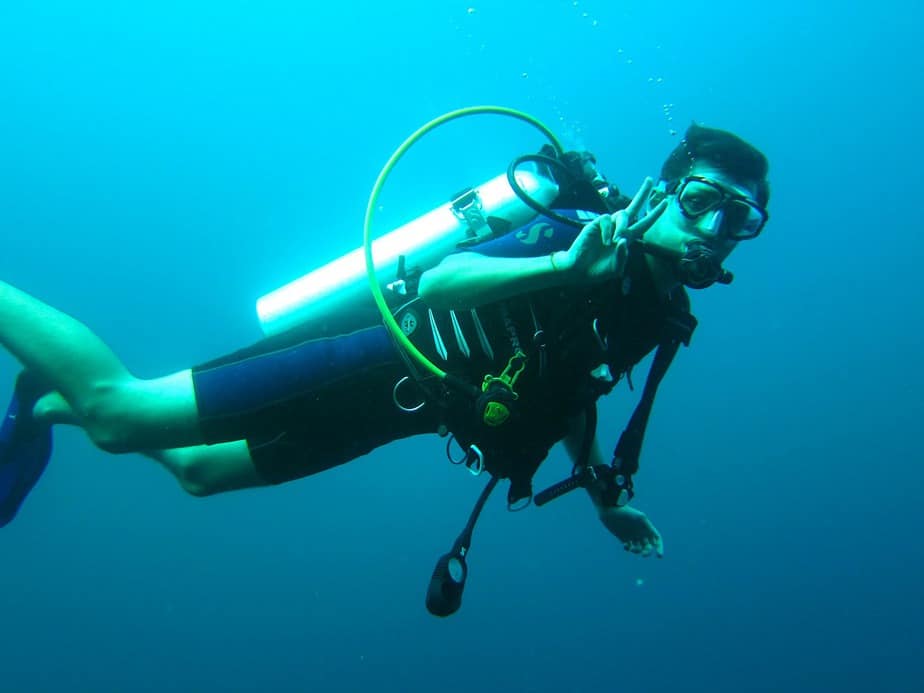
Sometimes it just feels better to call something your own. You can have the satisfaction of saying, “That’s mine”. In the same way that someone can spend hours polishing their car and looking at it in admiration, you can look at your scuba gear and think, “Man, that looks good”.
You spent your hard-earned money on your dive kit, so you better enjoy it to the max. Having a sense of satisfaction and fulfillment is one way to enjoy your gear outside of the water.
Does that sound like something only a crazy person would do? Say that to the people who have completely repurposed an empty room in their home into a dedicated scuba gear storage space. There’s an art to taking care of your stuff, and people take great pride in how good of a job they are doing.
Maybe a scuba tank isn’t as luxurious and attractive as a car, but darn it, you can be proud of owning one anyways.
You can get some money back if you’re not satisfied

So you bought a scuba tank but you regret it. It’s just sitting in storage, taking up space and gathering dust, yearning for attention it will never receive. What now?
Luckily for you, you have many options for dealing with an unused or old tank. As we mentioned, scuba tanks can last for decades, particularly steel tanks. Thus, it’s one of the few pieces of gear that retains its value pretty well.
Most other pieces of scuba gear will fall off a depreciation curve pretty much the second water touches it. Good luck trying to resell a wetsuit after you’ve peed inside it, or a regulator that you’ve already slobbered with your saliva (actually, regulators from top-tier manufacturers have decent resale value).
In fact, a scuba tank is almost like an appreciating investment. Sometimes their prices will go up! This is assuming you took great care of it and it continues to pass all of its inspections, of course.
That said, if your tank ever fails a hydro and is condemned, it can still serve a purpose. You might still be able to sell it to an instructor who wants to buy it to use as a teaching aid to show students what a faulty tank looks like.
Worst case scenario, even after your tank fails a test and you fail to sell it online, you can still scrap your tank. The metal usually has some value, and you might be able to get $10-20 back.
Reasons to rent a scuba tank
Many newly certified divers mistakenly assume that a scuba tank is one of the first things they should buy. No, quite the opposite in fact; scuba tanks are one of the last things you should buy, if you decide to buy one at all. In this section, we’ll go over the reasons why you might want to rent a scuba tank instead of ever buying one.
Cost
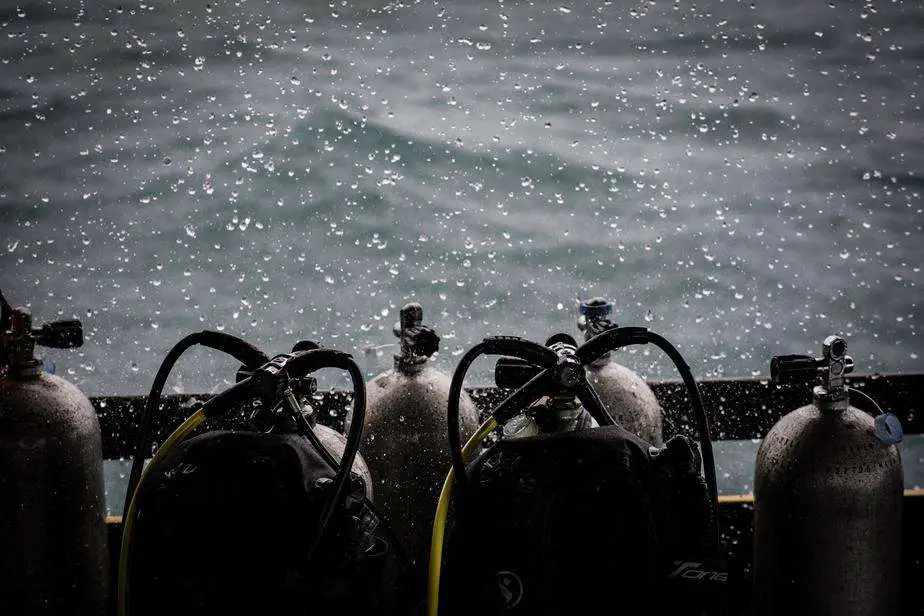
If you scuba dive infrequently or you live in an area where the cost of renting and refilling a tank is very cheap, then you may come to the conclusion that you don’t need to buy your own scuba tank.
For instance, if you live in a landlocked state and have no interest in freshwater diving, and the only time you get to scuba dive is during your annual vacation, then it’s very much not worth it for you to buy a scuba tank. The maintenance costs and storage space it takes up will ensure that it’s never worth it for you to own your tank if you rarely dive.
A scuba tank is not just a one-time purchase; it’s a recurring cost. You have to pay for refills, an annual visual inspection, and a hydrostatic pressure test every 5 years. If you’re just a casual diver, you shouldn’t have to worry about all of this; let the dive shop handle it and you can just rent from them.
Convenience

Sometimes renting a scuba tank can be more convenient than owning one.
Once again, if you only scuba dive while vacationing abroad, you have to consider how practical it is to bring your entire scuba kit with you on an airplane. You’ll quickly find that it’s headache-inducing figuring out the logistics behind how you can get your gear there in one piece, but it also costs extra. Once you’re at the destination, it’s also a pain to lug all of your gear around.
Instead, you can just rent all or some of your gear at a local dive shop at the destination. The largest items such as BCD, wetsuit, and scuba tank should probably be rented. Smaller items like your mask, snorkel, fins, dive computer, and regulator can fit into your carry-on. If you are part of a boat tour, it’s possible that they will provide “free” rental gear as part of their service.
Another point in favor of renting is that it’s so much more convenient if you hate filling up your tank, cleaning it, storing it, or maintaining it in any way. Basically, a scuba tank’s upkeep is no longer your job. You just need to return it in one piece to the dive shop and you’re done with it. It’s out of your life; no worrying about servicing it or sending it off to be inspected.
You aren’t committed to scuba diving
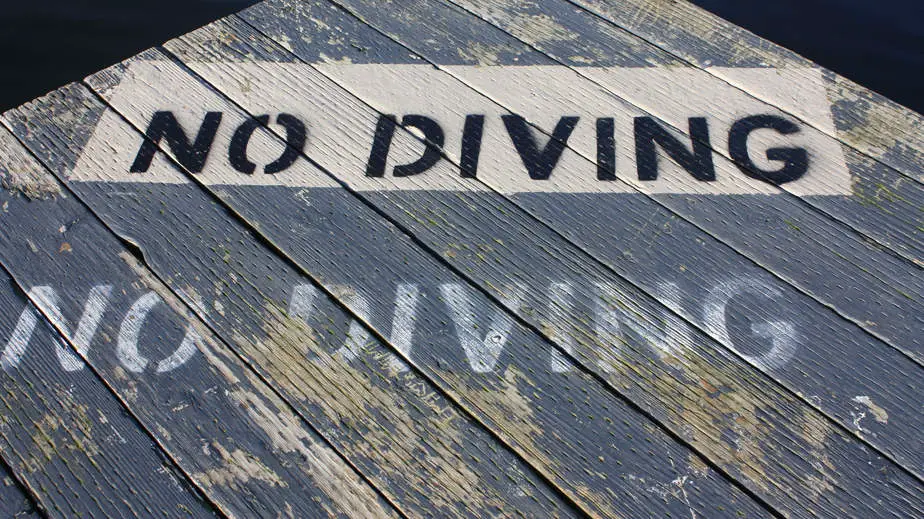
This is not an admonishment. Some people who get into a sport like scuba diving do so for recreational purposes or because they were encouraged to. Maybe they tried it once on vacation and decided they wanted to do it every year from then on. Perhaps a family member or friend got them into it. For whatever reason, they learned how to do it, but maybe they aren’t so passionate about it without external encouragement.
We see this happen a lot. People who are newly certified and are in the honeymoon phase with scuba diving rush out to buy a full set of scuba gear, only to end up listing it on eBay or Craigslist within a few months.
What happened? Well, maybe they realized that they don’t like diving as much as they thought and made an impulse purchase only to regret it. Maybe they weren’t aware of how much it costs to maintain their gear; the scuba tank is probably the most high maintenance piece of equipment out of the whole kit.
Besides, most people who end up purchasing their scuba gear do so piece by piece over time. They rent the pieces they don’t currently own, and sometimes they decide never to own certain pieces, preferring to rent indefinitely (a common strategy employed by people who travel abroad to dive).
So, be honest with yourself. Do you really like to scuba dive as much as you think? Or is this just a phase that you’re currently in that you’ll eventually lose interest with eventually? If you can be honest with yourself, you’ll know whether it’s worth it for you to buy a scuba tank (also consider buying a used tank), or if you’d rather just rent.

